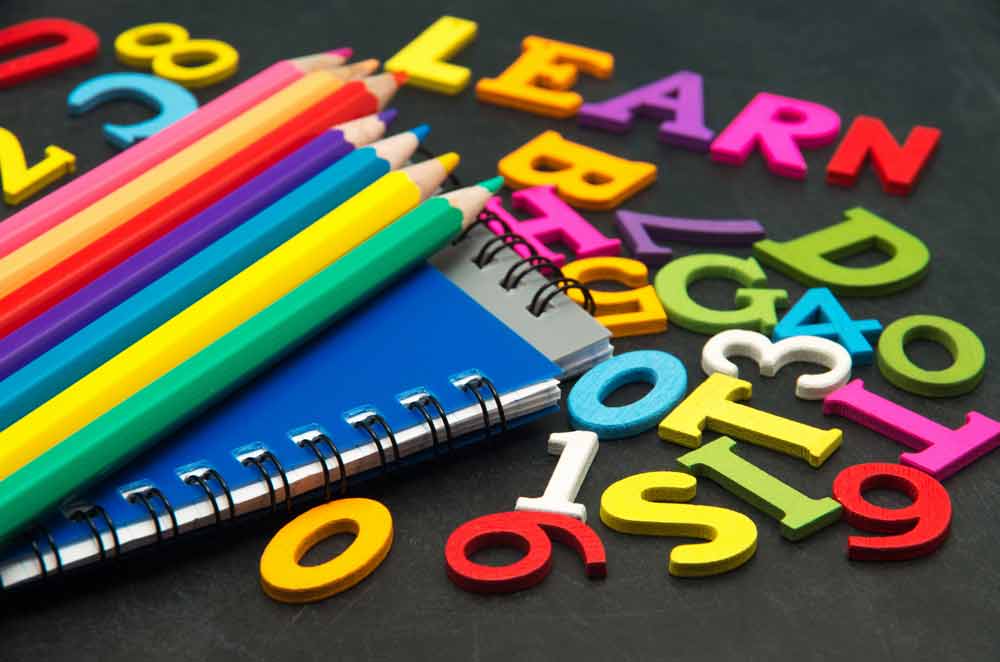 As an experienced educator who has been through more than two dozen back-to-school seasons, I have my own ideas about how to get a new school year off to a good start and keep it moving forward. Here are some quick tips for teachers at any grade level and in any location.
As an experienced educator who has been through more than two dozen back-to-school seasons, I have my own ideas about how to get a new school year off to a good start and keep it moving forward. Here are some quick tips for teachers at any grade level and in any location.
- Get your personal life in order. Reduce your stress level by preparing for pre-service week by getting caught up with bills, mail, household projects and lingering issues. I have found it best to begin a new school year with an empty personal to-do list. That way, you can focus on the setup of your classroom or space.
- Pre-order or shop early for materials. Avoid the crowds by purchasing any materials that you need for the start of school beforehand. During the summer time there are more bargains to be found at the teachers’ store and in educational catalogs, therefore it is wise to shop and save in July and August. I hate crowded stores and long lines so you won’t find me buying school and teaching supplies the first week back!
- Be inspired by someone.Find a mentor, an instructional coach or author who moves you to expand and enrich your own practice. Talk, read. and or view DVDs or video clips to learn more about their ideas. Bring those ideas to life in your own classroom. Don’t be afraid to put your own twist on their thoughts.
- Communicate early.Whenever possible make contact with students and families early on, even before school begins. Send a card, letter or e-mail if possible. A warm welcome goes a long way in building strong relationships where families feel valued, included and respected. Continue to provide multiple ways for you and your families to access each other so that sharing is ongoing.
- Tidy up and get organized.No one likes to come back to a mess or piles of stuff. Organize your files and materials. Don’t be afraid to pitch old papers, books and resources that are dated and are no longer useful. It is a luxury to have empty space at the beginning of a school year…no doubt it will get filled up shortly. Also, develop systems for keeping track of data and documenting student progress.
- Establish a positive classroom climate and learning environment. I like to say that I have a “no secrets policy” in my classroom. I continually and clearly communicate expectations to my students about their learning and behavior. Using rubrics and checklists ahead of time allows students to understand what you expect from them. If students know what you expect, they are better able to meet or exceed your expectations. By providing and maintaining a positive classroom climate, students are better able to take risks, feel safe and improve academically.
- Try something new. Each year I like to expand my skill set or repertoire by adding at least one new program, routine, strategy or material to my current practice. This helps me to stay excited about teaching and learning. For example, last year I was focused on using more technology and used programs such as Wordle and Kidspiration to engage my students. This year I am planning to incorporate more suggestions from Words Their Way into my word study program as well as use an electronic grade book to document my students’ progress.
- Get connected.Make a positive first impression with students and parents. Right from the beginning make sure your students and parents know that you are committed to their learning and that you care about them as individuals. Let them know that the work that occurs in your classroom is important and that you believe that everyone can succeed. Share with them that if a student needs help you will be there for them.
- Build relationships.Get to know the people in your building, especially your teammates and colleagues. Work to develop professional learning communities where teachers and administrators can work together to break down obstacles that interfere with learning. Also be kind and appreciative to the secretaries and custodians in your building. They are invaluable resources, and you will likely need their assistance in the future.
- Be reflective.Continually think about the work that you do with your students. The best instruction is deliberate and purposeful. Evaluate what is working and what needs change or enhancement. Make adjustments as needed and keep moving full steam ahead. Your students will benefit from your thoughtfulness and continuous expertise.
By Amy Shapiro, Reading Specialist and National Board Certified Teacher
 From learning to write to perfecting your writing, My Learning Springboard offers a full spectrum of writing support, including:
From learning to write to perfecting your writing, My Learning Springboard offers a full spectrum of writing support, including: It’s a common complaint to hear schoolkids ask “Why am I learning this? When will I ever use this in my life”. Have you noticed, though, that you don’t hear this complaint from students who actually understand what they’re learning? That’s because no one cares whether material is useful when they’re having fun discovering solutions and satisfying their natural inquisitiveness. I have helped many pupils who have spent the majority of their lives detesting (not too strong a word) math, only to find that- when the lightbulb comes on, they love the feeling of deep satisfaction when
It’s a common complaint to hear schoolkids ask “Why am I learning this? When will I ever use this in my life”. Have you noticed, though, that you don’t hear this complaint from students who actually understand what they’re learning? That’s because no one cares whether material is useful when they’re having fun discovering solutions and satisfying their natural inquisitiveness. I have helped many pupils who have spent the majority of their lives detesting (not too strong a word) math, only to find that- when the lightbulb comes on, they love the feeling of deep satisfaction when  At
At